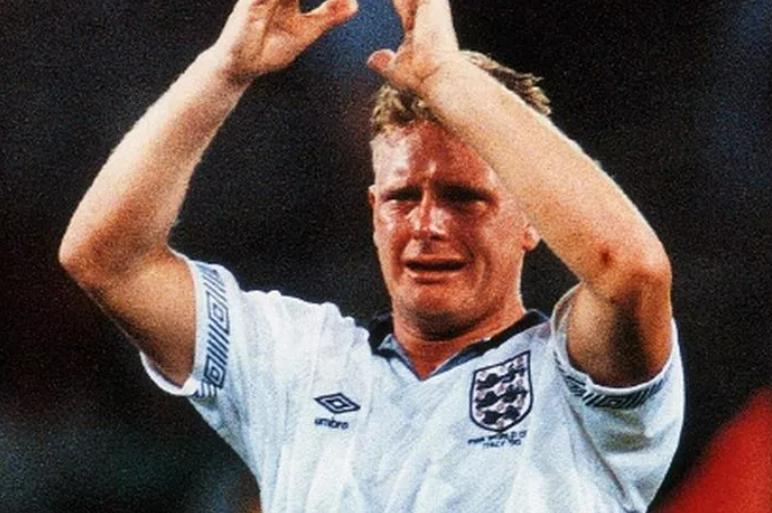The Beautiful Game.
Once upon a time, football lived up to that name.
So simple, yet infinitely unpredictable. Fast-paced, exhilarating, players displayed skill, steel and joy in equal measure.
But in the UK, something’s gone badly wrong. The Premier League is supposed to be the pinnacle of the sport, but almost every week brings a new low.

I lived and breathed football for the first twenty-odd years of my life. But I’ve been almost completely turned off by the way things have gone in the last few years. Certain issues are ruining the game for fans and players alike.
Everyone has the same gripes, but nothing seems to get done even though the solutions are simple. In fact, when the powers that be intervene, they often make things worse. So I’m going to share the biggest things that, for me, are turning the beautiful game into an ugly shambles – and how I’d solve them.
Shambolic laws
I played football to a pretty good level, refereed for a few years, and I’ve watched thousands of games. I like to think I have some sort of understanding of the game. There are so many problems caused by the incorrect or inconsistent implementation of the laws of the game. Now, this isn’t a dig at referees – I know how difficult it is to referee and the on-pitch officials are usually very good.
No, it’s how the referees get told to officiate games, or how some things have just become ‘part of the game’, despite the fact they make the experience of playing and watching it much worse. The annoying thing is, it’d be so SIMPLE to cut these shitty features of football out.
Lack of transparency
Woven throughout all the issues around problematic laws and officiating is a lack of transparency. I firmly believe players and fans would be much more accepting of dubious decisions if they at least got an explanation. As stupid as football fans sometimes seem, most of us are not, and would be able to understand the thought process behind a decision even if they didn’t agree with it.
But alas, there seems to be an arrogance in football – nobody’s allowed access to the mysterious ways in which the laws are implemented. Whenever there’s a controversial decision, it’s basically a case of “That was the decision because we said so.”
Solution: There’s a simple solution that’s worked effectively in rugby for ages. Mic the officials up so we can hear them. Not only would it provide insights into referees’ decisions, but it would also enrich the viewing experience. It would provide another layer of interest for fans watching the games.
And I don’t think it would rub off badly on the referees. I think fans would respect them more. And it’d certainly discourage players from hurling abuse at officials – another ugly and embarrassing aspect of the game -if they knew they were being recorded.
Cynical fouls
A team’s on the attack. They lose the ball. The opposition is on the counterattack just inside their own half, outnumbering the defence who are now out of position. The crowd get excited as they smell a goalscoring opportunity.
But it’s short-lived. The player with the ball is deliberately tripped and a foul is given. The game stops, everyone watching sits back down in their seats, disappointed at yet another break in play. Players might get away with two or three of these before they’re booked.
Now even though this is a pathetic feature of the game, I don’t blame the players for this. They’re playing to win and they’ll do whatever they can get away with to prevent goals. It’s accepted as part of the game. But it shouldn’t be. It RUINS the game.
In no other sport are players allowed to deliberately break the rules to stop an opponent from scoring without penalty. In rugby union, for example, any foul committed by the defending team inside their own half gives the attackers chance to score 3 points with a penalty. It’s a genuine deterrent.
Also, people aren’t paying good money to watch free-kicks taken from the halfway line. To watch one team have an attack, lose the ball and then all the players stop and reset themselves before the next one. That’s American Football (appalling sport). No, football fans want fast-flowing, end-to-end stuff – attacks, shots, goals. How many goalscoring opportunities are denied by these deliberate fouls that so often go unpunished?
Solution: I recently read about a German referee who had some progressive ideas on how to sort out some of football’s issues. One of them was that the attacking team should get a free-kick on the edge of the opposition box if a defender deliberately fouls to prevent a promising attack. It would make players think twice about doing it and spectators would get more goalscoring action.
Offside
Where do we start with this?
Offside decisions have probably been the biggest source of fans’ frustration in the last couple of years. In fact, it was an offside controversy that inspired me to write this post – Bruno Fernandes’s goal to level the scores in January’s Manchester Derby (skip to 1:25 to see the goal here).
The fact that this goal was given shows a fundamental lack of understanding about football – the belief that you have to touch the ball to interfere with play.
If that were the case, why do we coach attackers to make runs that divert and distract defenders knowing full well they won’t receive the ball? The fact is (as many top-level defenders have said) that if an attacker is running towards the goal, they are affecting the defenders’ decisions and positioning, and therefore interfering with play – even when they don’t touch the ball.
The Rashford goal was the most extreme example of this. I mean, he’s literally run for 20-odd yards towards goal with the ball under his nose and looks like he’s about to shoot at the edge of the box. If that’s not interfering with play, I don’t know what is.
Solution: Let people who know what they’re on about decide the offside laws.
VAR was supposed to sort all this out, but because of the lack of understanding and clarity around the offside laws, it’s become a farce.
Video Assistant Referee (VAR)
Now I’m not against technology assisting officials in principle. It works well in cricket and rugby. But the way VAR is being used in football is doing more harm than good.
Let’s go back to the offsides again. VAR was brought in for offsides with the idea that it’s black and white – it’s either offside or isn’t. They make these judgements using freezeframes and superimpose computer-generated lines to decide whether a player is offside. But again this is something I think is fundamentally wrong because there is a HUGE disconnection between the way they make the judgements and the way the game is played.
Attackers timing their run beyond defenders is an art form. There’s a huge amount of skill involved in anticipating when your teammate will play the ball, judging the movements of the defenders and making your run at the right moment. Attackers do all this using spacial awareness and peripheral vision while running at high speed.
And it’s beyond human capability to know exactly where a precise point on your body will be at any given millisecond when doing this. The best you can aim for is keeping the bulk of your body in line with the bulk of a defender’s body.
But you see, when they use the freezeframes and digital lines to decide whether a player is offside, it’s only their toe or their armpit that’s offside by a matter of centimetres.
To me, that is simply unfair. So many times, strikers have been denied goals for imperceptible margins when in previous years, they would have been lauded for perfectly timed runs. Celebrations have been halted and games have been ruined because of a computer-generated image that nobody watching in real-time would have perceived.
With this method of VAR for offsides, we are witnessing the destruction of an art form.
Solution: Now, I’m not saying we shouldn’t use replays to determine offsides. Obvious errors should be overruled if a player is miles offside. But there NEEDS to be an element of human judgement, with the benefit of doubt going in the ATTACKER’S favour, as it has been throughout football’s history.
Something that happens in motion should be judged in motion. Football is not played standing still, and judging offsides using freezeframes and digital lines eliminates the skill and subtlety that makes football a joy.
If you really wanted to keep this extreme version of VAR, perhaps have some sort of review system like they have in cricket. Give each team one review and if a goal is scored where the defending team think it’s offside, let them send it upstairs for VAR to review. It would add an extra layer of drama and strategy to the game, as it has done in cricket.
VAR does have its merits when it comes to spotting fouls that officials have missed – but it’ll never be 100% accurate because most laws in football have a degree of subjectivity and ambiguity. Also, they generally just take far too long to make decisions.
Ball out of play (time-wasting)
For all that was wrong about the 2022 World Cup, there was at least one thing it got right – actually adding on time that was wasted. It seemed absurd to some when fourth officials were holding up double-figure numbers for the additional time. But this reclaiming of wasted time (instigated by the legendary referee, Pierluigi Colina) was long overdue, and even then it wasn’t enough.
In the Premier League, over the last ten years, the average time the ball is in play during a match is 55-56 minutes! More than an entire third of the match when nothing is happening.
Which is frankly disgusting when you consider the amount of money fans spend on watching football in the UK. Fans deserve better than this – and the solution is simple…
Solution: Set a duration for each match – say 60 or 70 minutes – and simply stop the clock every time there’s a break in play. The pathetic time-wasting tactics we see towards the end of every match – mostly involving the leading team feigning injuries – would be eradicated as there’s no advantage to be gained.
What’s more, you’d be guaranteed a minimum amount of actual football action in every game – fans would actually get what their money’s worth.
Ludicrous money
And speaking of money, it’s an issue that causes anger even among people who couldn’t give a rat’s ass about football.
And I can understand the frustration. The amount of money players are paid is obscene. There is an argument that players justify this by generating income through merchandise and TV rights. But I think this is only true of the global megastars. You could also argue that a small group of excellent players deserve their huge wages for what they do on the pitch.
What rankles with me is when you see the likes of Jesse Lingard getting paid £200,000 a week – an attacking player who has so far been involved in zero goals in the Premier League and is more known for his childish dancing. It’s difficult to see them shifting many shirts with his name on.
Wages aside, there are other issues around money in football that bother me. I saw recently that it cost £27 for Bradford City fans to watch their League Two match at MK Dons. That was just for the match ticket, not including travel. To watch a mediocre level of football in a tiny stadium.
Now consider this. A ticket for Bayern Munich or Borussia Dortmund cost 15 Euros. That’s to watch one of the world’s great teams in one of the world’s great stadiums. It would probably even cost you less to fly to Germany than travel from Bradford to Wimbledon. That’s just wrong, and so far detached from football’s roots as a working-class game.
What’s more, money is too much of a factor in who succeeds. In each of Europe’s top leagues, the last decade or so has been dominated by the team with by far the biggest financial resources – Man City in England, Bayern Munich in Germany, Real Madrid/Barcelona in Spain and Paris Saint-Germain in France.
It makes for a far less interesting competition and for me, diminishes the proper value of the sport. Especially when many of those clubs so obviously break financial rules. They are cheats. I don’t know what the solution is. Some sort of redistribution or proper regulation, but as to what that would look like, who knows?
Too much hype, not enough quality
For all the money and hype around football, too often the standard, even in the Premier League, is just… not very good.
Players have never had it so easy at the top level. Matchballs are lightweight and high-tech, with micro-textures that reduce air-resistance and improve players’ control. Same with the football boots. And they play in sheltered stadiums on hybrid pitches, with synthetic underlays and turf to keep it as smooth as a carpet. There hasn’t been a bobble in a Premier League game for about eight years.
And yet, how many times do we see unforced errors? Misplaced passes flying out of play. Strikers falling over when they shoot. Corners not making it past the first defender. There is literally no excuse. They practice these skills every day and are paid vast sums to do so.
When I was playing Sunday league, hungover, on an absolute swamp of a pitch in sideways rain, we would get a bollocking for making basic errors. Yet these so-called elites, with everything they have to make playing the game so easy, make them all the time.
As a spectator, you just expect better.
I could go on for days about all the other stuff that pisses me off about modern football, but you’ve heard enough. Well done if you’ve bothered listening to me grumble for this long.
I’d love to know what your gripes about modern football are, as well as what you think about my solutions. Also, if you have any alternative ideas on how to sort it out, let me know that too.






Recent Comments